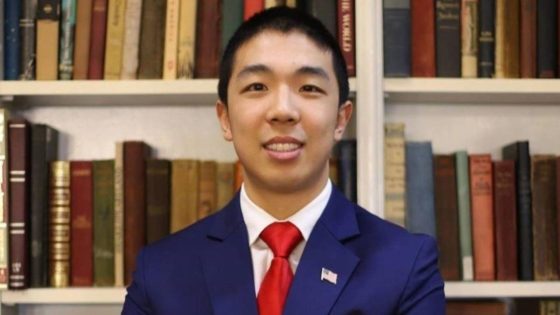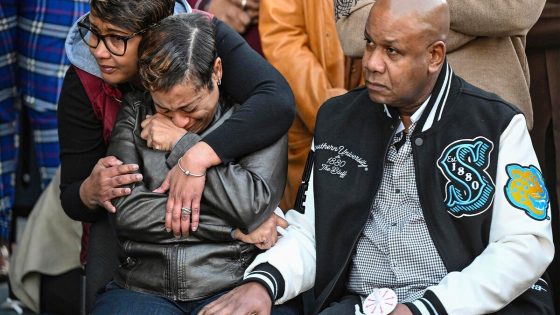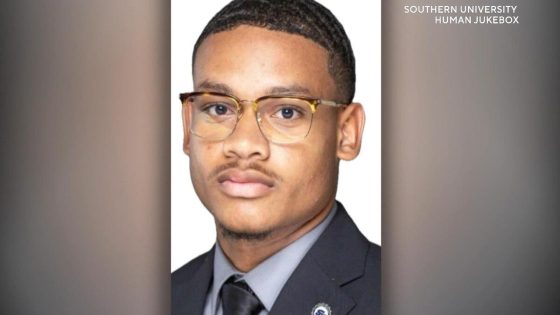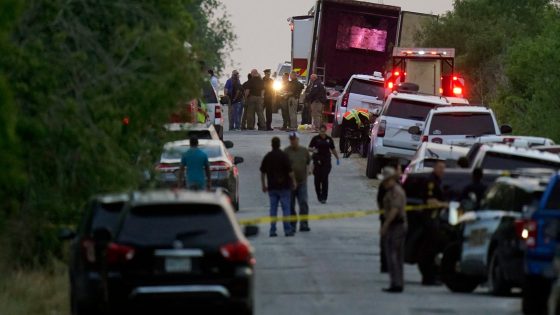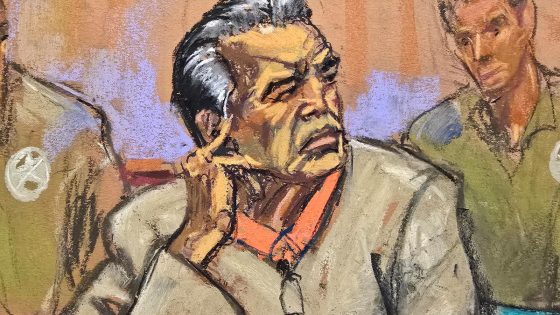On the night of February 6, 2021, a tragic incident unfolded in New Haven, Connecticut, forever altering the lives of two families. Kevin Jiang, a promising 26-year-old Yale graduate student and a former Army National Guardsman, was leaving the home of his fiancée, Zion Perry. The couple had spent a joyful day hiking and ice fishing before sharing a meal at her place in the affluent East Rock neighborhood. Little did they know, as Kevin stepped into his Prius around 8:30 p.m., that their lives were about to take a harrowing turn.
- Kevin Jiang was a Yale graduate student.
- He was shot eight times after a fender bender.
- Qinxuan Pan was identified as the suspect.
- Pan had a possible obsession with Zion Perry.
- Jiang's murder linked to prior .45 caliber shootings.
- Pan received a 35-year prison sentence.
Just two blocks from Zion’s apartment, Kevin’s car was struck from behind by a dark SUV. Initial impressions suggested it was a minor fender bender, prompting Kevin to exit his vehicle, likely to check on the other driver and exchange information. What happened next was shocking. Reports indicate that the other motorist opened fire, shooting Kevin eight times—a brutal attack so intense that the gunpowder scorched his face. This was no road rage incident; it was a carefully executed murder.
The lead detective on the case, David Zaweski, spoke about the urgency of the investigation during an interview, emphasizing the need to unravel the events surrounding Kevin’s untimely death. Witnesses reported hearing the crunch of metal followed by gunshots, with some even catching brief glimpses of the assailant. One witness recalled seeing a figure dressed in all black standing over Kevin’s motionless body, continuing to fire as he lay on the ground.
As investigators gathered evidence, they discovered something troubling. The spent shell casings found near Kevin were .45 caliber bullets, similar to those found at four recent shootings in the New Haven area—shootings that had caused no injuries until this pivotal moment. Authorities were initially left pondering, was this a random act of violence, or was Kevin targeted for a specific reason?
Zaweski and his colleague Steven Cunningham soon began to suspect that the truth was far more personal. “When you have someone laying on the ground and not moving, what would cause someone to continue firing?” Zaweski pondered. The investigation took an even more perplexing turn, linking Kevin’s murder to a series of .45 caliber shootings that had gone unsolved.
The dark SUV driven by the shooter became a key piece of the puzzle when investigators received a tip shortly after the incident. A motorist had contacted the police about being stranded on train tracks near the scene of the murder and had a seemingly benign excuse for being there. This motorist was later identified as Qinxuan Pan, a student from the Massachusetts Institute of Technology (MIT), who was later discovered to have connections to Zion Perry.
As detectives delved deeper, they found that Pan and Zion had previously crossed paths at a Christian group during her undergraduate studies at MIT. Despite their scant acquaintance, Pan’s fixation on Zion may have driven him to commit murder, coinciding with Kevin’s recent engagement to her three weeks prior. The motive appeared rooted in obsession, with investigators suspecting Pan had carefully orchestrated the events that night.
With each twist in the narrative, the urgency of the investigation mounted. U.S. Marshals became involved, particularly concerned that Pan, a fugitive with access to considerable financial resources, might flee the country. The investigation to bring him to justice was high profile and fraught with tension, as Pan’s parents were suspected of attempting to help him evade capture. Their large withdrawals and suspicious behavior raised alarms among law enforcement.
Eventually, investigative persistence led authorities to a breakthrough. Pan’s mother accidentally made a call from a hotel, which investigators used to track her son down to a boarding house in Alabama. When the Marshals arrived, Pan surrendered without resistance, found in possession of approximately $20,000 in cash and multiple communication devices.
Charged with Kevin Jiang’s murder, Pan later accepted a plea deal, receiving a sentence of 35 years in prison. This outcome drew mixed reactions from Kevin’s loved ones, especially his mother, who felt the punishment was insufficient for such a profound loss. Zion Perry echoed those sentiments, emphasizing the lasting impact of Pan’s actions.
Even after four years, the community grapples with the tragedy. Friends and family remember Kevin as a man of deep faith who might have offered forgiveness to his killer. As they reflect on his life and the decisions leading to his death, they find solace in the hope that Kevin’s legacy will never be forgotten, and the lessons learned from this tragedy will continue to resonate within their hearts. The investigation revealed not just a murder, but a complicated tale of obsession, loss, and the tarnished pursuit of justice, leaving an indelible mark on all who knew him.



